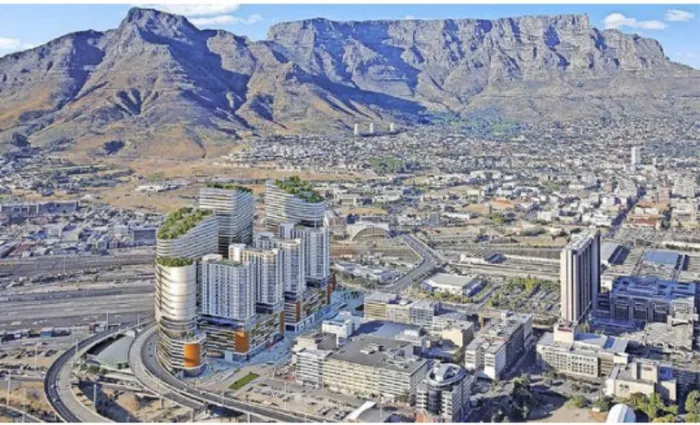Cape Town achieves unprecedented business confidence with 96% satisfaction rate

A picture of the Cape Town CBD.
Image: Supplied.
Cape Town CBD's business confidence reached an all-time high with over 96% of retailers indicating they were “satisfied” with business conditions in the Mother City in the third quarter of this year.
This is revealed by the latest Business Confidence Index conducted by the Cape Town Central City Improvement District (CCID).
World-class restaurants, destination coffee shops and niche fashion stores make up the largest portion of the retail sector, with 23 new outlets in 2024.
“Owner-led businesses have reshaped the CBD by reviving spaces, creating jobs and diversifying the business landscape. The resulting niche destination venues give rise to a characterful and vibrant day- and night-time economy,” say Tasso Evangelinos, CEO of the CCID.
The CCID’s recently published economic report, State of Cape Town Central City Report 2024 – A Year in Review (SCCR), indicates that the CBD continues to be a stable, business-friendly environment.
According to data in the SCCR, Cape Town contributes around 72% of the Western Cape’s annual GDP of R667 billion, with the CBD remaining a vital economic powerhouse and employment and business node.
The report, which is described as pertinent to the 1.6 km² geographical footprint of the CCID in the inner city-shows that 3 290 entities conducted their business in the CBD in 2024. Of the 17 business sectors tracked by the CCID, 11 surged ahead, making good gains.
Retail's impact on Cape Town CBD
Retail is said to be key to the Central City economy, attracting residents, visitors and tourists into the CBD. The SCCR data shows growth in the retail sector for the third consecutive year to a record high of 1 323 entities, including 45 exciting new destinations opened in 2024.
Business owner's confidence
The results of the CCID’s Q3 2025 Business Confidence Index are in line with the consistently high levels of satisfaction recorded last year. The index has been conducted annually since 2020. In the latest edition, 305 business owners in all major retail categories took part.
The Q3 2025 results follow consistently high levels of satisfaction amongst business owners in doing business in town.
The SCCR reports that throughout 2024, the level of satisfaction, on average, was over 91 %, with over 75 % indicating they felt the economic environment had improved in 2024.
In the latest index, many respondents had high expectations of trading conditions improving in 2026.
Evangelinos says: “Central City businesses have shown remarkable resilience, innovating and reimagining themselves to remain relevant. They are confident about their future, with 68.12 % of respondents indicating that they expect conditions to improve even further in 2026.”
Several business sectors showed growth in 2024, according to the SCCR, including the legal and medical sectors, which both have a strong presence in the Cape Town CBD. The financial sector also increased its presence.
Meanwhile, the co-working sector opened five new spaces in 2024/25, with a total of 22 shared office spaces available in the CBD. Catering to self-employed and hybrid workers as well as digital nomads taking advantage of South Africa’s new remote visas, this sector is expanding, with many upcoming multi-use developments planning co-working spaces.
The CCID, alongside its partners, including the City of Cape Town, are said to be playing an important role in creating a functional foundation for businesses by ensuring a secure and clean inner city.
“The CBD is a safe, attractive and vibrant environment where people congregate to live, work, shop and play. It continues to offer fertile ground for innovation and opportunity, setting the stage for the business sector to remain buoyant and grow from strength to strength,” concludes Evangelinos.
According to TheAfricanvestor, Cape Town's property market is experiencing robust growth with average prices hitting R2 million and rental yields averaging 9.4% citywide.
The team, made up of financial experts, legal professionals, developers, and local cultural specialists, says the market shows strong demand in inner-city neighbourhoods like Woodstock and Observatory, where properties are selling within 3-5 weeks and delivering rental yields of 8-11%.
International buyers are returning to the luxury market, while young professionals drive demand in up-and-coming areas, it said.
Independent Media Property
Related Topics: